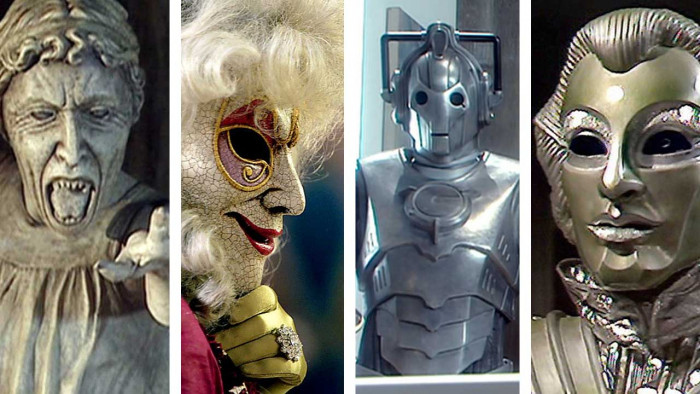For George, life is blissfully simple. He wakes up every morning to be offered first dibs on breakfast. Then, having filled his belly with fine fare, he spends the rest of the day using his natural strength and high social ranking to bully and intimidate his inferiors, before persuading the most attractive female in his immediate eyeline to come home with him. Yes, for George, life is one long holiday.
We should mention at this point that George is a monkey. And what’s more, his idyllic simian existence is currently under threat. Recent studies at the department of ecology and evolutionary biology at Princeton University suggest that alpha-male baboons — such as George — are suffering from dangerously high stress levels. It appears the constant fighting, screeching and careful guarding of their social status have finally combined to wear the most ostentatious, confrontational members of the species down.
But it’s not only in the jungle where alphas are beginning to lose their grip. Recent years have seen the beta quietly, but steadily, gain ground. In music, the journalist-baiting swagger of Liam Gallagher has given way to the charming, fiercely intelligent wit of Alex Turner. In business, modest, mild-mannered types such as Mark Zuckerberg and Bill Gates command international respect, while barking dinosaurs of Donald Trump’s ilk have become figures of ridicule. Even our DVD collections are brimming with fictional betas, such as Tim from The Office, who are shown gloriously besting their showier rivals to get the girl in the end.
So, the question is: what’s brought about this seismic shift in the masculine hierarchy? Why, in spite of all his yelling and chest-thumping, has the alpha male fallen from favour?
OUR DEFAULT SETTING
Professor Eric Anderson, author of Inclusive Masculinity: The Changing Nature Of Masculinities, believes that, despite its traditional supremacy in the animal kingdom, the ‘alpha’ type is not necessarily the most natural form of manliness for highly evolved human beings.
“Men are emotional creatures,” he tells ShortList. “We like to cry, we like to bond with our mates, we enjoy physical tactility. So all these hyper-macho tropes are highly unnatural; it’s the ‘beta’ male that’s the true version of masculinity.”
Clearly, this is the sort of statement that would have Kenny Powers snorting derisively into his beer. If alpha males are so “unnatural”, why have they enjoyed such unchallenged dominance in the past? According to Anderson, homophobia plays a major part.
“In extreme homophobic atmospheres,” he says, “heterosexual men feel pressure to prove that they’re not gay. They do this by acting like Rambo — showing off, being sexist and aggressive — because these traits are all typically coded as ‘straight’. However, over the past few decades, as society has become more accepting and open, men have felt less compelled to align themselves with this old-school, alpha-male behaviour.”
If, as Anderson maintains, ‘alpha’ is not man’s true default setting, but rather a defence mechanism designed to signify ‘straightness’, then why should we keep up the act in a world that’s increasingly relaxed about people’s sexual preference? Why not just be our natural, ‘beta’ selves? These are clearly the questions running through the minds of men across the country.
“We’ve recently seen the rise of the ‘bromance’,” says Anderson. “Straight men becoming more honest about their close relationships with each other. The coining, and widespread use, of the term ‘metrosexual’ has helped too. That meant straight men could take better care of themselves and be softer, nicer and less aggressive, without anyone assuming they were gay.”
But there’s more to it than this. The simple fact is that, in 2012, ‘alpha’ behaviour has not only become unnecessary, but it’s also become counter-productive.
A quick survey of our current world leaders proves that blinkered, confrontational machismo is far from the vote-winner it once was. Jean Hannah Edelstein, journalist and author of the book Himglish And Femalese explains: “Look at someone such as Silvio Berlusconi. He’s considered a joke now, but 50 years ago his behaviour wouldn’t have seemed quite so comical or unacceptable.
John F Kennedy was a huge ladies’ man too — that was a quality that people used to appreciate in their leaders as they thought it indicated strength and dominance. Now they want someone who is committed to their family.
“Obama is certainly someone who falls into the traditional ‘beta’ category,” she continues. “He has a close relationship with his wife and he’s not about aggression. One of the reasons he won the US presidential election in 2008 was that he exemplified that emblematic masculinity that is so appealing to people now. John McCain was more old-school, yelling his opinions over everyone else – whereas Obama was all about reason and banter.”
“Ultimately,” she concludes, “Obama’s just a smart, sensitive guy. He’s also the leader of the Free World.” Little wonder, then, that other smart, sensitive guys no longer feel obliged to hide their intelligence or emotions. In fact, they’re happy to flaunt them.
BETAS IN BUSINESS
Nowhere, it seems, are these newly invigorated nice guys putting their mild manners to better use than in the nation’s workplaces. Mike Gorshkov, managing director of recruitment specialist Linea Resourcing, has witnessed the rapid rise of the boardroom beta first-hand over the past few decades. “That classic Gordon Gekko-type may have been relevant 30 years ago,” he tells ShortList, “but the world has changed considerably since then. Most western nations have experienced a broadening of views, in terms of political correctness, diversity and inclusion, and management style has changed greatly to accommodate that.”
However, while Professor Anderson maintains this increased diversity and understanding leads to men naturally curbing their macho aggression in the workplace, Gorshkov is quick to point out that stricter legislation has played a big role in the decline of the ‘office alpha’ too.
“I’m sure in certain places, ‘alpha’ behaviour still goes on,” he says, “but for the most part, you simply can’t act like that in an office any more. Legislation has come a long way to protect people against bullying, aggression and discrimination in the workplace — and rightly so.”
Put simply: if Mr Gekko were to swagger through his office today branding everyone eating a midday sandwich a “wimp”, he wouldn’t be hailed as a hero; he’d be hauled in front of an industrial tribunal.
Another key factor in the changing nature of masculinity in the workplace is the simple inclusion of females. In the past decade, the number of women executives in the UK has risen by 180 per cent and, as Gorshkov points out, “The macho banter that occurs in an all-male office inevitably wanes in an environment where females are present.”
More than anything else, though, ‘beta’ males are simply yielding better results — and it’s not just the ludicrously swollen bank accounts of Messrs Zuckerberg and Gates that prove it. Recent studies at University College London’s Wellcome Trust Centre For Neuroimaging showed that testosterone-choked males are actually under-achieving in the workplace because their egoism and stubbornness blinds them to opinions outside their own.
Gorshkov confirms this: “Businesses are realising that, to get the best out of people, they have to motivate each individual team member differently. This is where alpha males fall down — they can think only in terms of black or white. Clients are increasingly put off by this kind of management — they see it as a style of the past. These days, a successful employer has to encourage their staff to deliver, not simply demand that they deliver.”
Anderson agrees: “Being overly macho and aggressive simply doesn’t get you respect in the workplace any more. It’s being softer, more inclusive and fair-minded that wins people over today.”
But let’s be clear here: just because betas aren’t furiously pounding their fists on tables or hurling coffee mugs at petrified interns, it doesn’t make them inherently weak or lethargic.
“The term ‘beta’ has come to imply negativity or inferiority,” says Edelstein. “But I wouldn’t associate a beta male with being a pushover, rather someone who’s interested in listening and being reasonable and not saying, ‘I’m always right.’”
Gorshkov adds: “The people at the top of businesses now are rarely the overtly ‘alpha’ types. However, that doesn’t mean they don’t have energy, desire, hunger and motivation — these are essential to success in any field. It just means they have learned to manage these traditionally ‘alpha’ qualities in a ‘beta’ way, by applying themselves in a more team-driven, motivational manner.”
RULES OF ATTRACTION
If, as Sigmund Freud attested, “love and work are the cornerstones of our humanness”, it would seem that the humble beta has the latter cornerstone well secured. But what of the first? Surely, when it comes to attracting the opposite sex, the tougher, louder, more cocksure alpha still reigns? Apparently not.
“Obviously, some women still find alpha males appealing,” says Edelstein, “but for the most part, females have always preferred kind, loyal, funny, ‘beta’ types. In the past, they’ve had to choose alphas over betas because of economic need or social pressure. They weren’t working, so they were looking for a provider — that was the most important thing. But as women have gained independence, that need for a provider has lost its primacy and they’ve become free to pick someone who is their emotional and intellectual equal, whose company they actually enjoy.”Again, we’re back to the idea of the alpha male as an increasingly outdated and irrelevant model.
If the key to their traditional dating dominance wasn’t superhuman confidence and impressive bone structure but rather the security they could offer, where does that leave them now that women — and, indeed, betas — have become equally competent providers? With women no longer obliged to tolerate their more obnoxious characteristics, it’s hardly surprising that the alpha’s appeal is fading.
What’s more, to add insult to already substantial injury, it’s not only betas’ personalities that have become more appealing to the modern female. “Leonardo DiCaprio became a huge sex symbol in the Nineties,” says Anderson. “But he wasn’t an action hero, he was a thin, scrawny, almost feminine-looking guy. The idea that he could be attractive to women made men realise they didn’t need huge, Schwarzenegger-style bodies to appeal to the opposite sex.”
Ultimately, the most encouraging news for beta men is that this shift in our perception of what masculinity should be is far from temporary. “Thirty years ago, the violent, macho types ruled the schools and everyone looked up to them,” says Anderson. “But in British schools today, you’ll find a much less hierarchical stratification. There are various types of masculinity on display — geeks, musicians, actors — and they’re all equally valued. Research shows that what really makes children popular in the 21st century is whether they can make friends within those different groups.”
For the foreseeable future, then, it appears that nice guys can — and will — finish first.
Images: Rex/Allstar
Latest
Related Reviews and Shortlists


The best Doctor Who episodes, ranked









